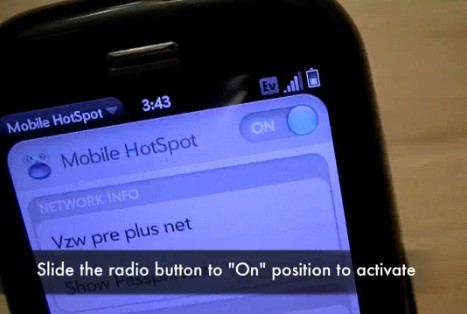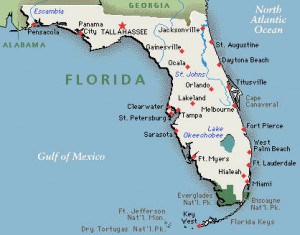
A Verizon Wireless tweet from this morning welcoming customers to a new era of "wonderful usage based plans."
Verizon Wireless might be regretting having a Facebook page open for comments after users started excoriating the company yesterday, when it first publicly broached the subject of its now-implemented wireless Internet Overcharging scheme.
“The price is too damned high,” exclaimed one customer livid that new customers would pay $30 for just 2GB of data usage (one penny higher than the company’s now-retired unlimited use plan). “$80 for 10GB? And I thought AT&T was greedy,” commented another.
Judging from the countless hundreds of negative comments, Sprint is about to have a robust quarter of new customer additions defecting from Verizon. Sprint retains its unlimited use plans on both its 3G and 4G networks, although the speeds do not compare favorably to Verizon’s LTE/4G network.
Matt Hamann summed up the sentiment of customers who despise usage caps, even if they are currently grandfathered on an unlimited use plan:
Hey, Verizon…I will *never* add another smartphone to my plan until you come up with fairer data prices. $30 for 2GB?? You gotta be kidding! How is this fair? How is it in your customer’s best interests?
Bottom line: IT ISN’T! It’s 90% corporate greed. What’s the best way to get more revenue from customers, huh?
Listen here: I’m already looking for better options. As soon as I find one, I’m gone. And I’ll take every family member and friend that I can along with me.
The best mobile provider you are no more.
Verizon created considerable confusion for their customers by saying nothing until just a day before the new plans took effect. Although the media has covered the imminent end of unlimited data for over a week, customers have not been notified by Verizon itself, despite one customer’s claim Verizon told him they mailed letters in advance of the plan changes.
As we have reported, those customers with pre-existing unlimited data plans will be able to retain them indefinitely, even if they upgrade to a new phone in the future, and even if they renew their contract. Only new customers, those changing plans or any new lines added to a family plan will face the “wonderful” tiered pricing Verizon tweeted about this morning.
To commemorate Verizon Wireless’ new mobile data prices, we present a clip from the leader of ‘The Rent is Too Damned High’ party.
Things got considerably more confusing over the mobile Hotspot feature — a tethering application built into most Verizon smartphones.
Verizon Wireless representatives were sharing conflicting information with Stop the Cap! about the availability and pricing of this feature as late as this morning, but we’re now confident we have an answer the company will commit to for impacted customers.
For 3G Verizon Wireless smartphones, nothing changes. It was $20 a month for 2GB before July 7th, and remains the same going forward. For LTE/4G phone owners, things are much more confusing. Existing customers have been enjoying free tethering on a special promotion made available only to 4G customers for several months now. That promotion officially ended this morning. A software update is imminent for 4G phone owners which will remove the free Hotspot feature and replace it with a prompt for one of two options:
- a $20 for 2GB Hotspot plan
- $30 Hotspot plan with unlimited usage
Most would be foolish not to lock in unlimited tethering with the $30 plan, which is a much better deal going forward. Where the confusion comes in is for customers rushing out to upgrade their existing phones to a 4G phone just to lock in unlimited data -and- unlimited Hotspot tethering.
We spoke yesterday afternoon to Verizon Wireless representatives who denied any knowledge of the $30 unlimited tethering plan or confused it with the basic unlimited data plan. Eventually, we were told only pre-existing customers with already-activated 4G phones would qualify for the option of choosing the $30 unlimited tether plan. It was too late, even before yesterday at midnight, for others to hop on board this deal.
But by this morning, we were starting to get different answers, culminating in a Verizon representative telling Stop the Cap! any customer who placed an order for a 4G smartphone through Verizon Wireless that invoked a plan change (part of the process of ordering the phone direct from Verizon assures that) would have likely found the addition of the “Verizon Mobile Hotspot Promo” as one of the line items added to your plan as part of the order. If so, that qualifies you for the $30 unlimited tethering option, even if you are still waiting for your 4G phone to arrive in the mail.
Verizon claims after you receive and activate your new 4G phone, attempts to use the Hotspot feature should offer you the choice for the $30 Hotspot plan. If it does not, we have the name and contact details of a Verizon employee that should be able to cut through the red tape and get you this plan. The only requirement is you had to order the phone before midnight on July 7th.
Verizon does not know at this point if customers will be offered the promotional $30 unlimited price for a limited time only, or will forfeit it forever if they do not accept it immediately (or drop the optional add-on at some point).


 Subscribe
Subscribe







